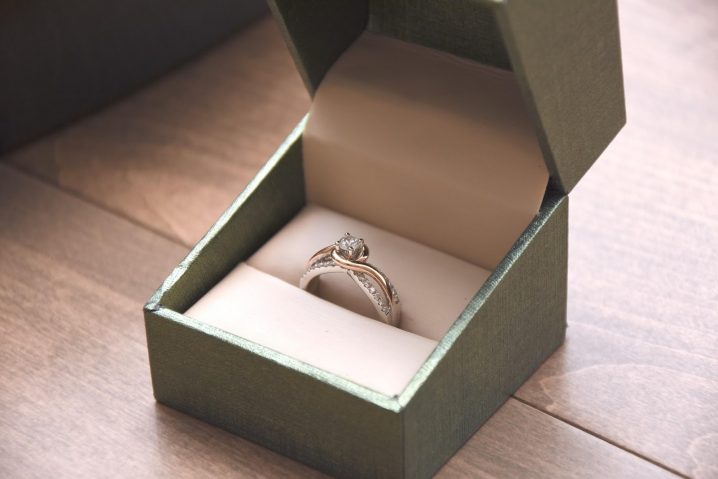If you’re thinking about purchasing a new ring in the near future, you’ll want to keep reading to learn what you need to know about jewelry and the business. From the price of the piece to choosing responsibly-sourced diamonds and considering custom options, our list will help you choose the perfect ring; for a gift or just to treat yourself. Here are five things to consider before you buy your next ring!

Price
While this should go without saying, we’re going to discuss it anyway, because it’s arguably the most important factor to consider. The price of your ring should be manageable with your current budget, and going into debt to purchase jewelry is a decidedly bad idea. That $10,000 diamond ring might look great on your hand, but do you really have $10,000 lying around for a diamond ring? (Some people do, and that’s great! But not everyone does…)
How much does the piece cost? Are there similar pieces available online or in another jewelry store? Do your research before diving in and making an impulse purchase. The quality of the materials used in the piece will help you determine if it’s a good investment or not, and you should be looking at your jewelry as an investment, especially if you’re buying precious metals like gold or silver.
If you look at your jewelry as an investment, you’ll likely be much more wary of the price. Don’t pay mountains for something that’s not worth that much, or that won’t be worth much in the future. Pure gold usually holds its value or increases over time, so it’s always a solid investment. Remember that you’ll probably never get back the same amount you bought it for, but it’s easier to recover a significant portion when you’ve purchased high-quality metals.
Jeweler
Your second consideration should be the reputation of the jeweler you’re purchasing from. Does the brand have a reputation for excellence, both in craftsmanship and customer service? If not, move along. Don’t waste your time on knock-off brands, careless chain stores, or otherwise distrustful brands.
Jewelry-making is a process that takes plenty of time, effort, and care; you simply won’t get a beautiful, high-quality piece from a company that rushes things and puts out jewelry designs just for the sake of it. Remember that you’ll be spending hundreds to thousands of dollars on the piece, so you want to be sure the jeweler you’re buying from is reputable and cares about their customers and their products.
Custom Options
Can’t find what you’re looking for in the jewelry store? Have you ever considered custom jewelry options? Custom rings, necklaces, bracelets, and more are available online and from certain brick and mortar stores, though you’re more likely to find fully customizable options online than you are in a chain store.
A custom piece of jewelry is so much more than just a necklace or a ring; it becomes a treasured keepsake. You’ll be able to customize the overall design, the metals and gemstones used in the process, and even engrave the piece with a name, date, or special message. Take your engagement ring to the next level with a personal engraving or the recipient’s birthstone instead of a diamond!
Nickel
Did you know that nickel is found in most jewelry and is an allergen for close to 20% of the population? Nickel is a harmful metal that’s used in a lot of jewelry due to its cost and ability to hold shape well. In fact, cheap jewelry is usually just nickel or brass that’s been electroplated with gold or another precious metal!
Have you ever experienced itching, discomfort, or an adverse reaction to a piece of jewelry? You likely thought you just had sensitive skin, but the truth is, there was probably an abundance of nickel in the piece that you had a reaction to. Before you buy your next ring, be sure to ask about the metallurgic content of the piece to ensure there’s no nickel.
Responsibly-Sourced Diamonds
The unfortunate truth about diamonds is that they’re often sourced from poorer countries, particularly on the continent of Africa. This means that some companies take advantage of the local people, treating the nations where the mines are with less than the respect human beings deserve.
We’ve all heard stories about blood diamonds, which are mined in war zones by poor citizens and sold to finance all manner of conflicts. It’s important that we as consumers “vote with our dollar” so to speak, and only purchase diamonds from companies who are careful about where they source the precious gems from.
Ethically-sourced diamonds should be a consideration for anyone looking to buy a diamond ring, so the next time you go to the jeweler, ask where their diamonds come from!



